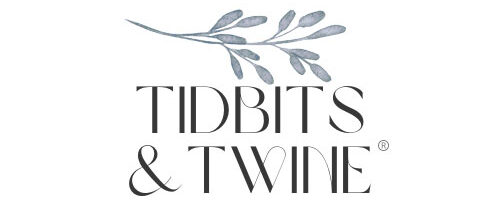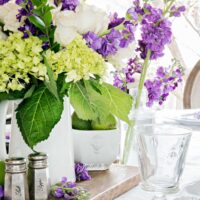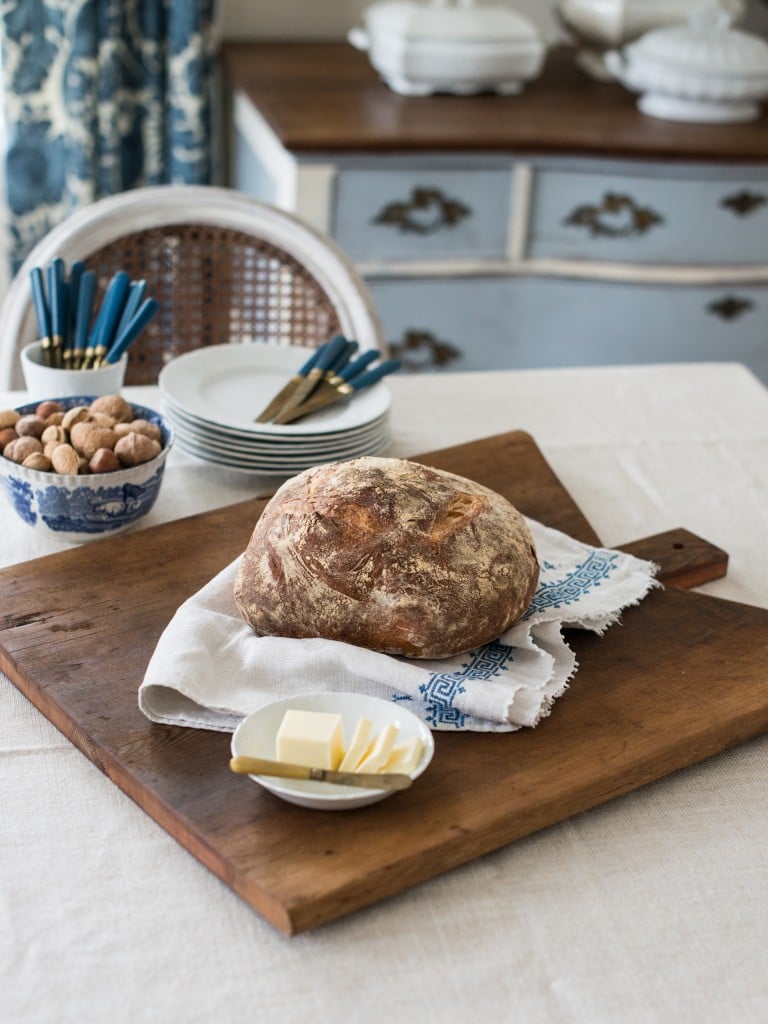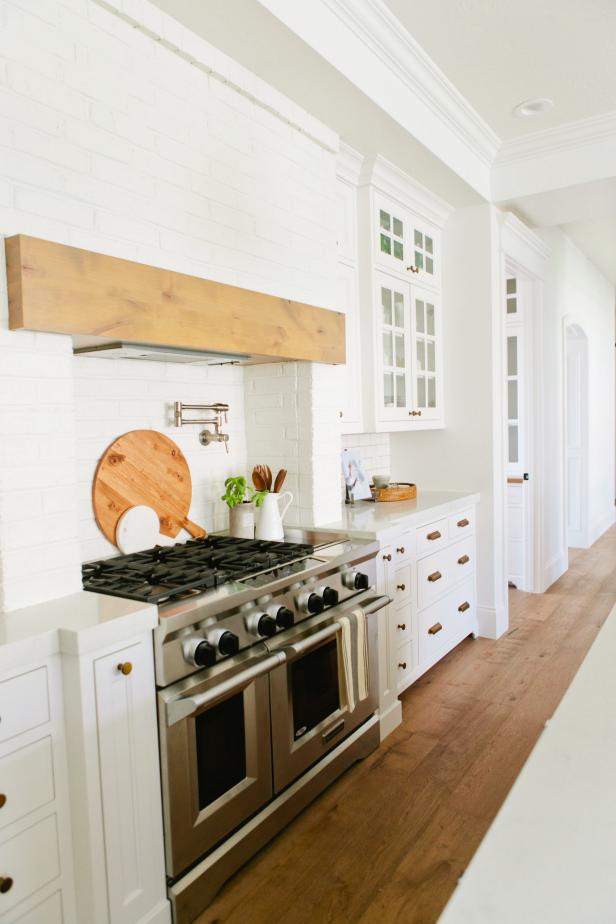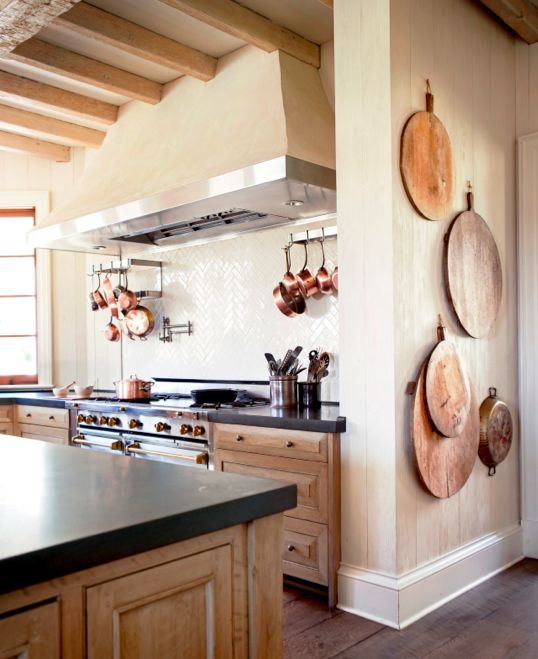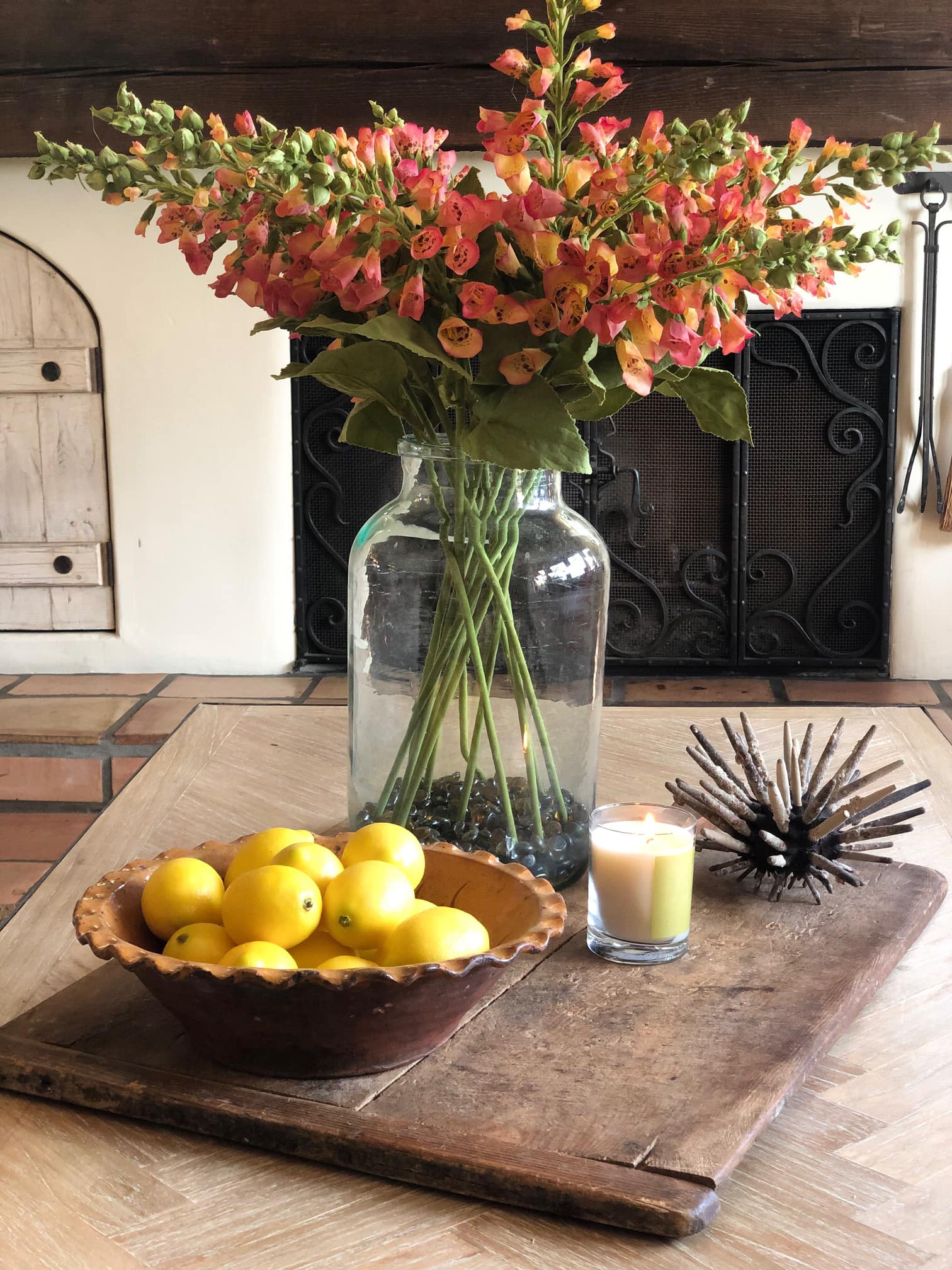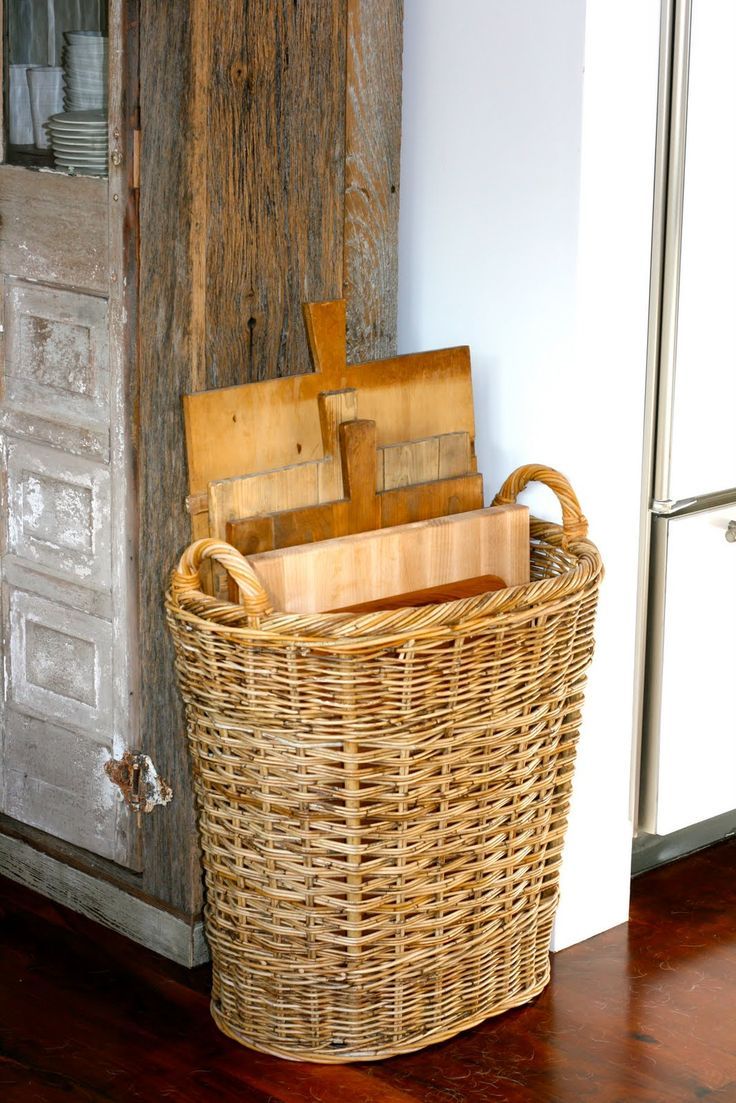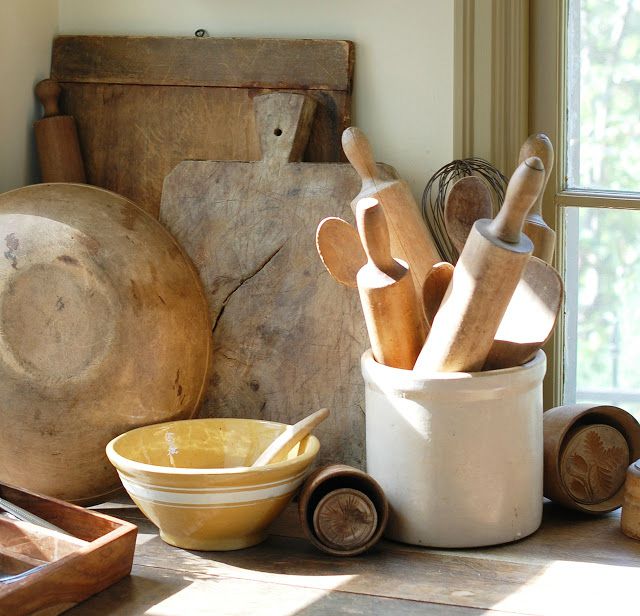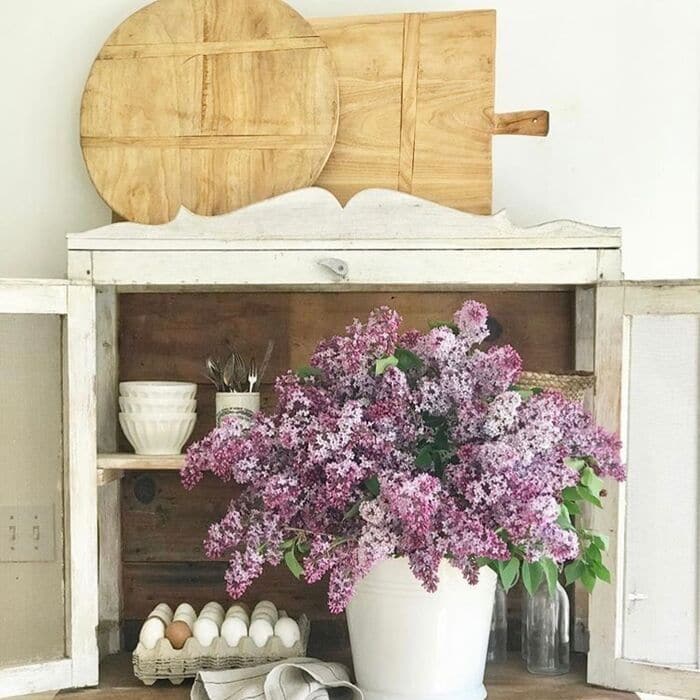Everything you need to know about collecting and decorating with antique bread boards as part of your home decor. From where to buy them to how to care for them, this is the complete guide!
For someone who doesn’t cook or bake, I own a lot of bread boards. But not just any bread boards. Specifically, antique bread boards from Europe!
My love of antique and vintage bread boards is similar to my love of dough bowls. But luckily for me, bread boards are smaller and easier to tuck away! This makes them easier for me to collect and display.
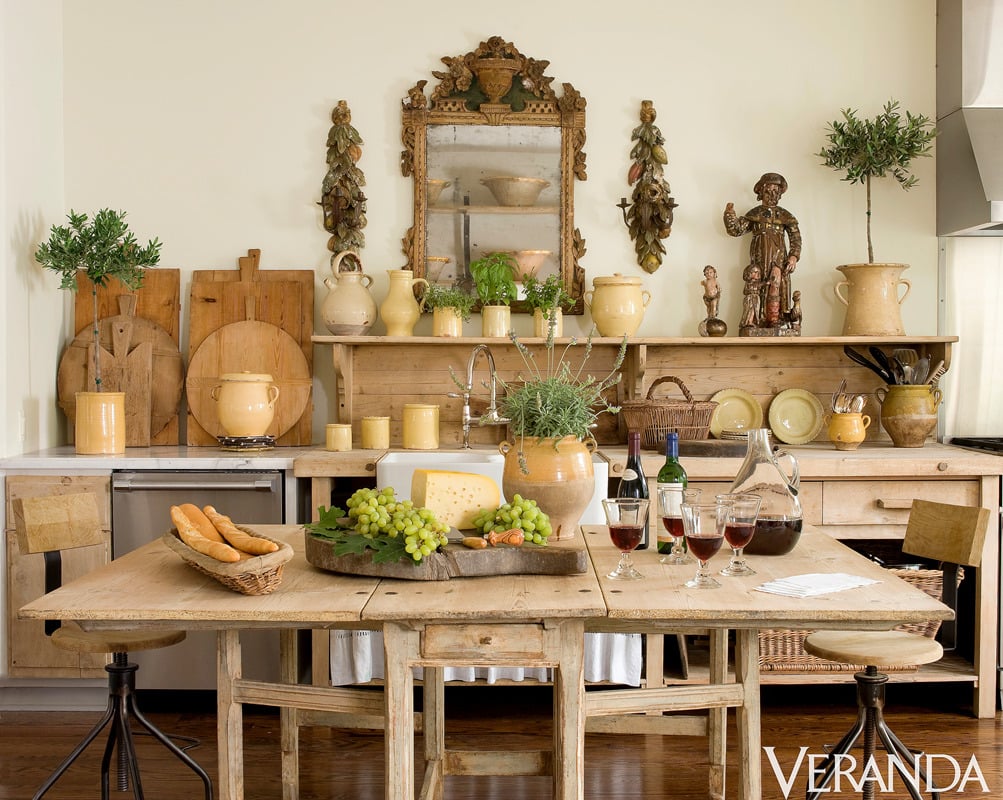
Now you might be thinking, why would I want to decorate with an antique bread board? Well, let me tell you.
These boards are oozing with charm and character. Each one is unique in size, shape, color, texture, and wear patterns. Some have knife marks, some have a worn spot from years of use. They all have a beautiful patina and add warmth and charm to a modern-day home.
Picking them up and looking them over, I can just imagine the stories they could tell of countryside bakeries (boulangeries) overflowing with baguettes or families gathered around the kitchen table sharing a meal together. But I digress…
Collecting bread boards is fun because no two are ever alike. But beyond their beautiful simplicity, they are quite practical, too! I use my boards for decorating on a regular basis, but also use them as charcuterie boards when having a large gathering. If not in use, I stack them in a large basket in the corner of my kitchen.
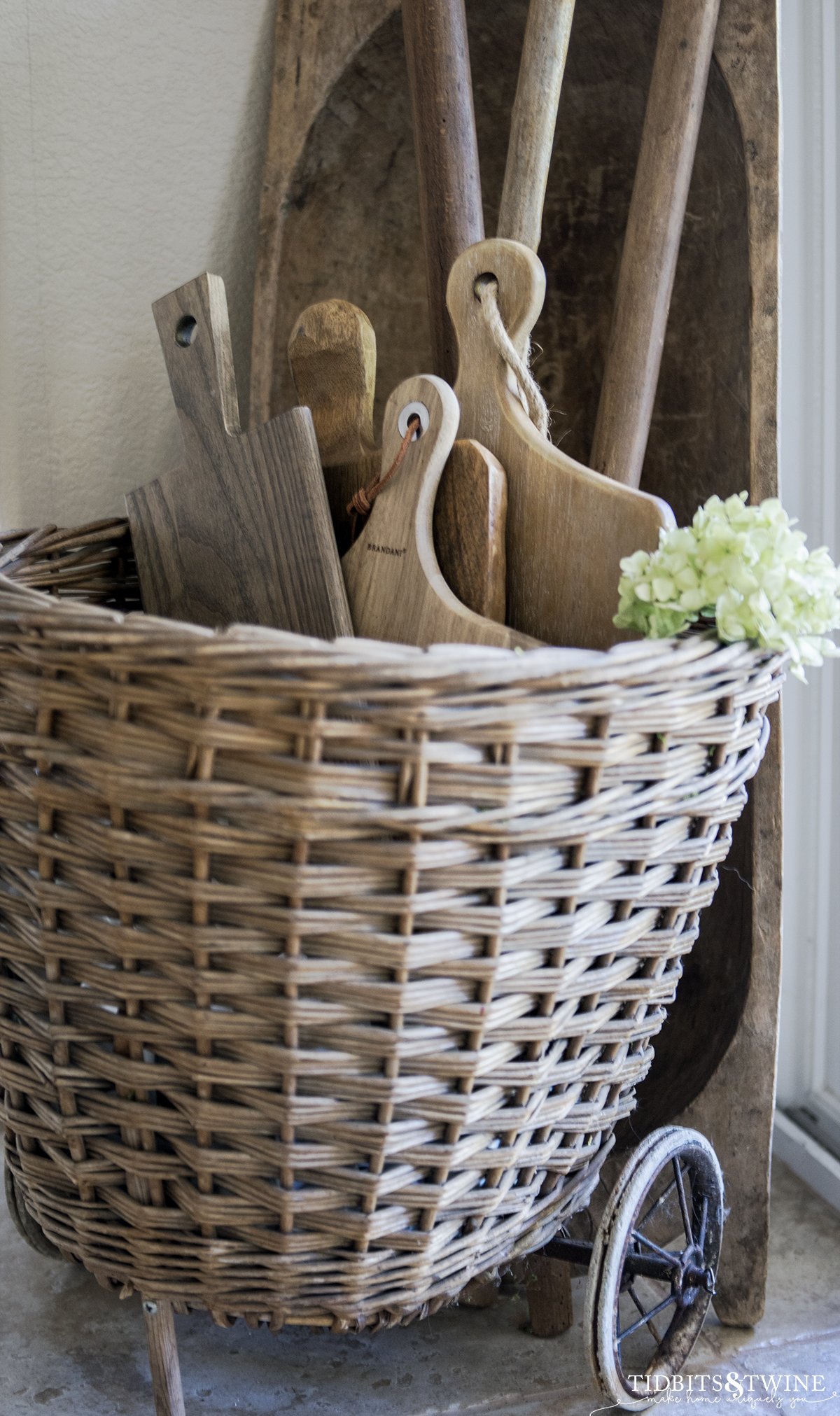
I’d be remiss if I didn’t tell you that antique bread boards can be expensive. Quite expensive in some cases! But not to worry, I’ll share some tips for how and where to find them at the best prices.
Sizes and Shapes
These vintage boards come in a wide array of sizes, from small boards meant for cutting baguettes at the table, to large ones used to bake multiple bread loaves in an oven. Some have handles with holes in them and perhaps even a leather strap to hang them on the wall.
The larger boards tend to be made of lightweight woods, like pine, so as not to make them too heavy to carry when loaded up. The size, country of origin, age, and condition, all affect the price of the bread boards. Older bread boards from France in good condition, for example, will be the most expensive.
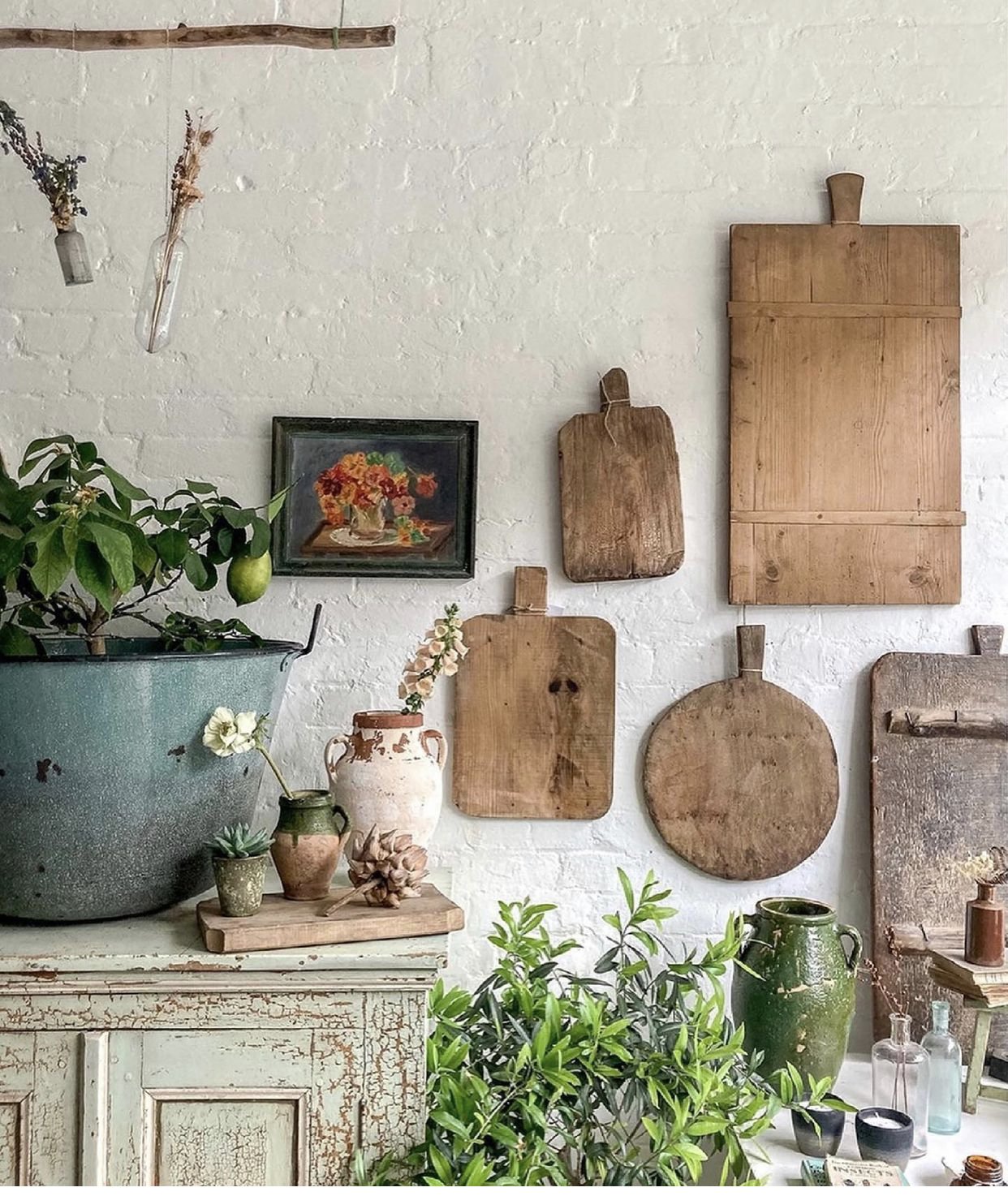
Antique French Bread Boards
When I first started researching bread boards, I just assumed they came from France….well….because I love all types of French antiques! In my experience, though, there’s a difference between French bread boards and those from other European countries, primarily Germany and Hungary. The true French bread boards I’ve personally seen are a carved solid board and are rather thick. For their size, these are the most expensive of the European bread boards.
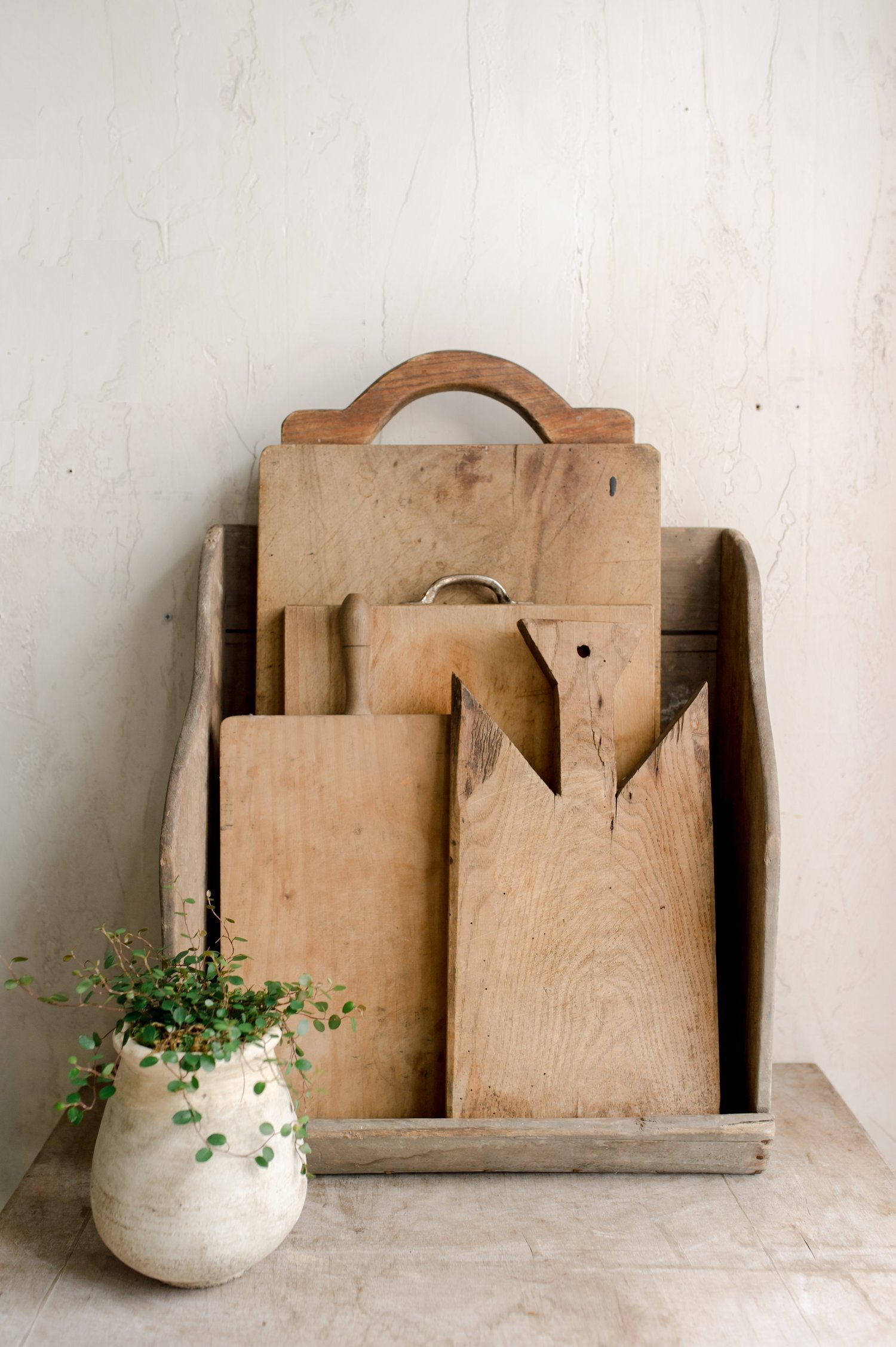
European Bread Boards
Slightly more cost-effective are bread boards from other European countries, like Germany and Hungary. These boards were used for baking in the oven and needed to withstand the high heat, as well as expansion and contraction. In order to do this, they are constructed of several pieces of wood that are “locked” together by pieces running in the opposite direction. There are no screws, nails or glue used in their construction. You might notice that some of the vertical boards wiggle a bit, but again, this is an intentional part of the board’s design.
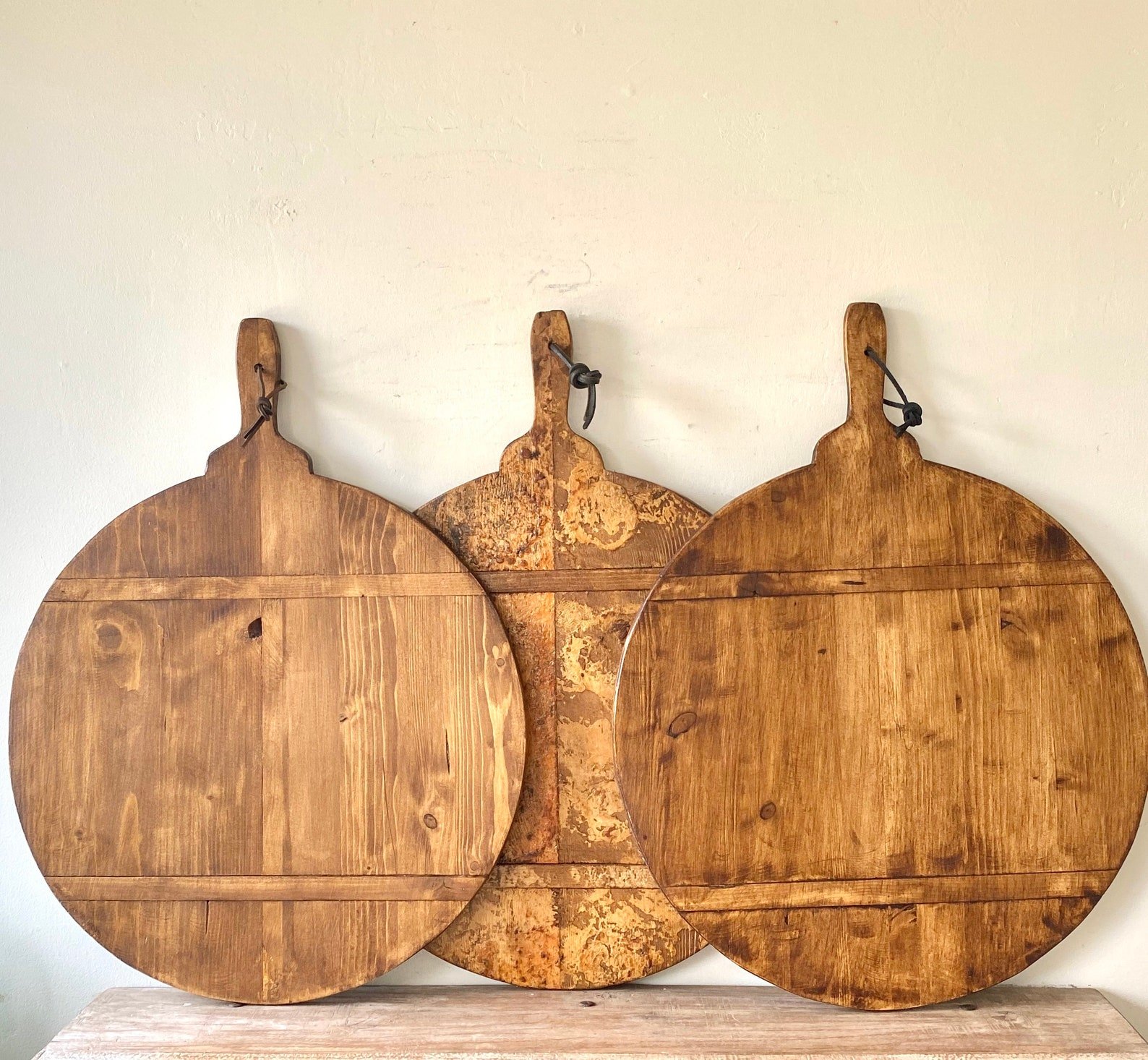
Ideas for Decorating with Antique Bread Boards
If you are looking to add tons of vintage charm and character to your home, but want to be practical, bread boards just might be the answer for you. You can use them as a tray on a coffee table, a backdrop to a modern kitchen backsplash, hang them on the wall, or group them together in a basket. They make great bases for vignettes and are a pretty way to contain objects for a clean look!
Here’s some beautiful inspiration for your own home.
Decorative Bread Boards in a Kitchen
A kitchen is an obvious place for antique bread boards. You can lean them up against the cabinets…
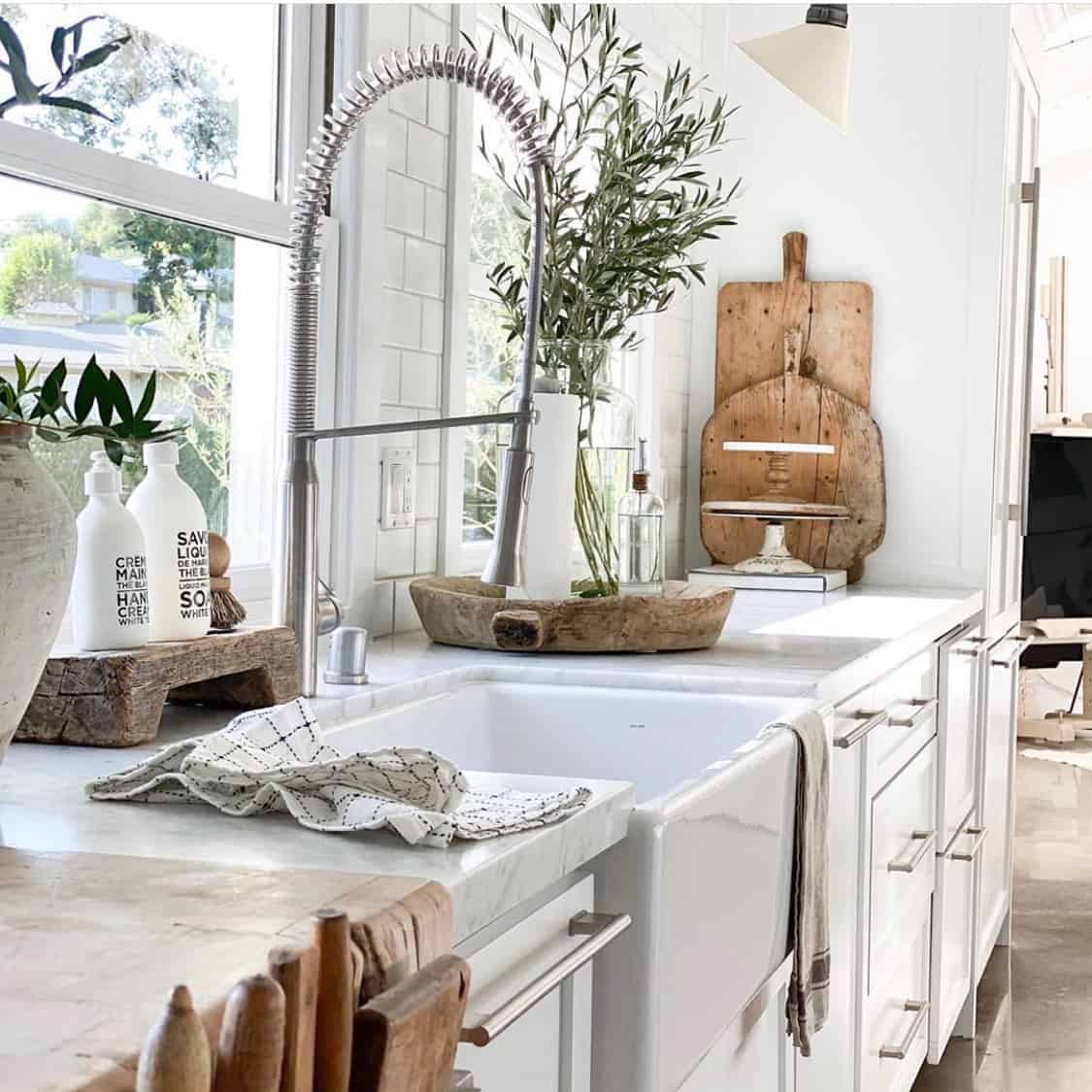
…or even up against the backsplash!
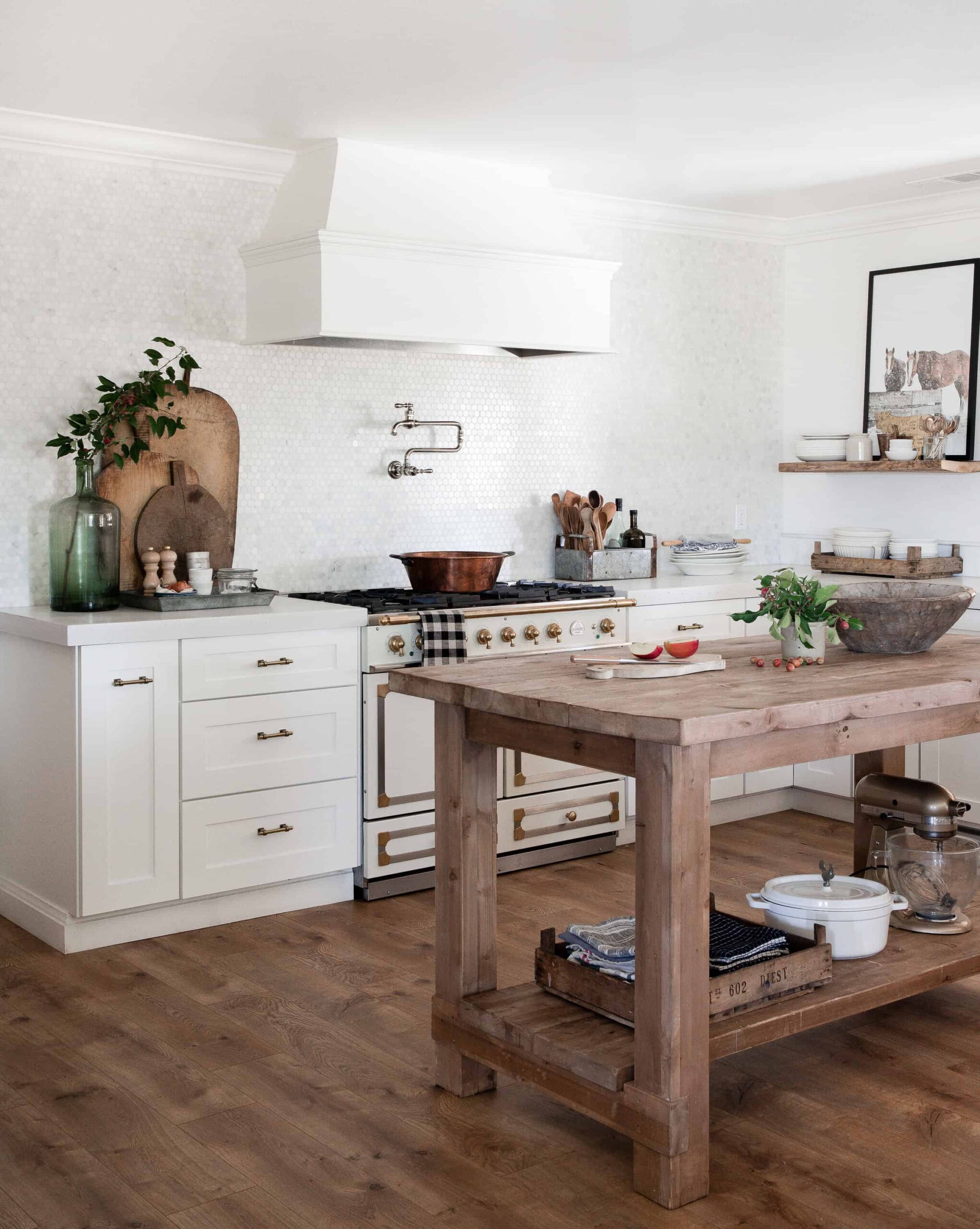
You can display them behind the stove (but remove them when the stove is in use).
Smaller bread boards also look beautiful displayed on open shelving!
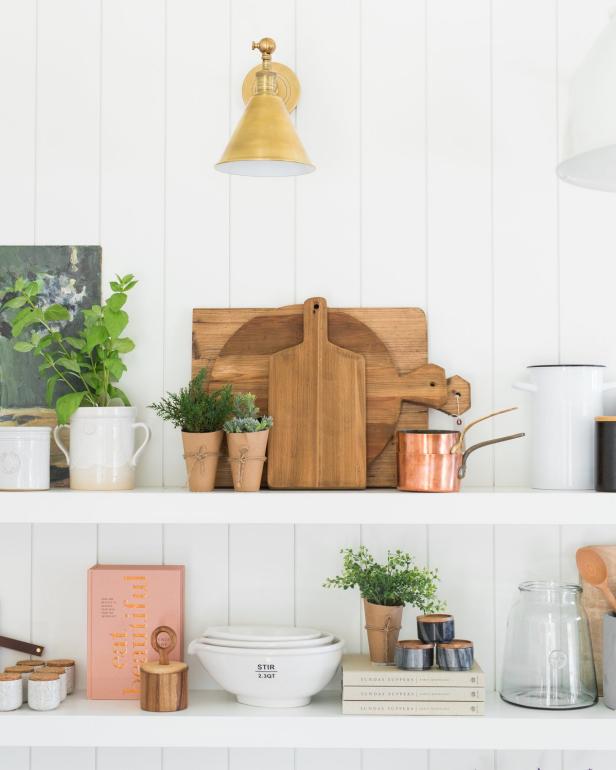
And you can place them on the counters to ground a vignette or other grouping.
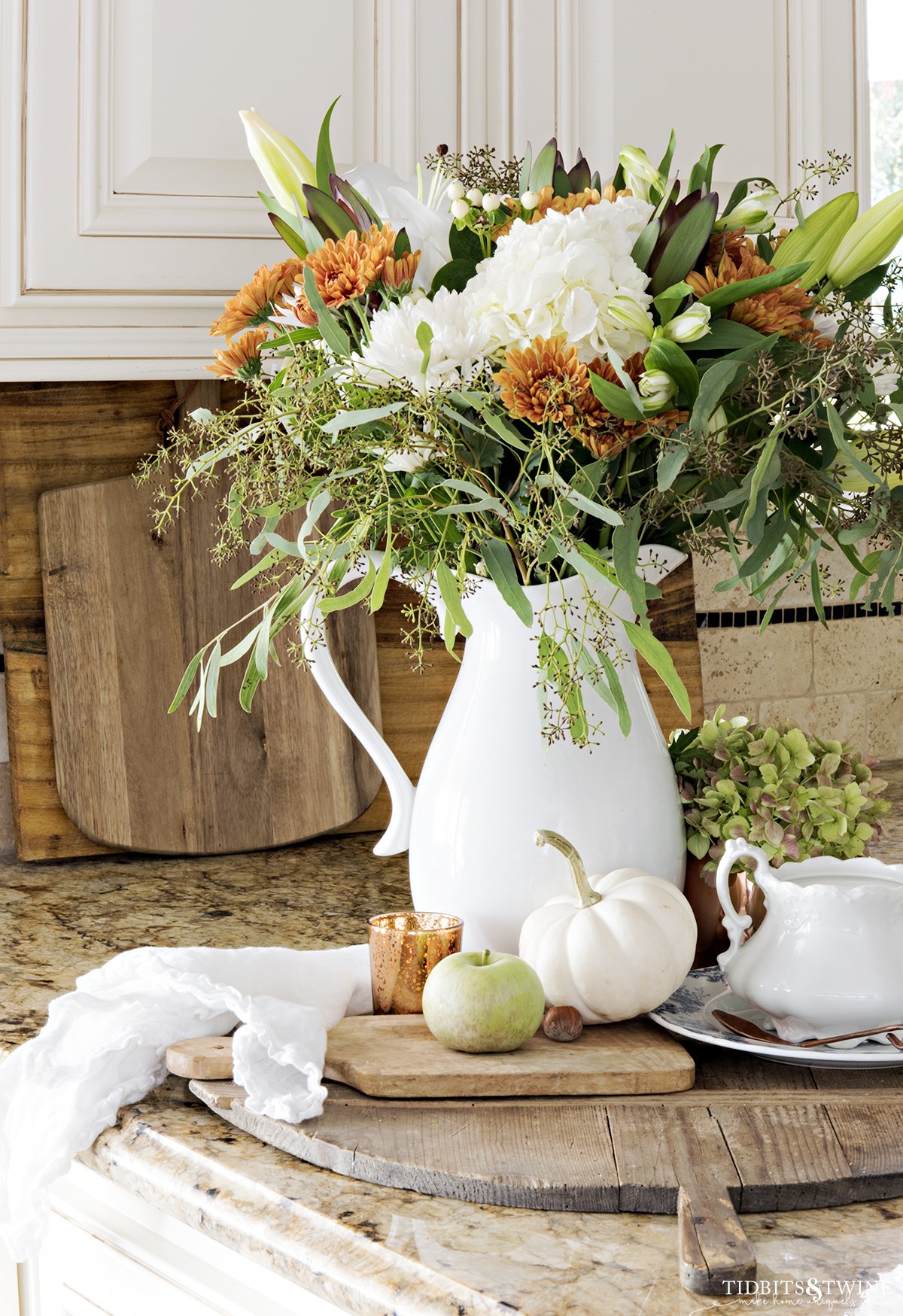
On a Table
Sometimes, instead of putting a vase of flowers or grouping of dishes directly onto the table, it’s nice to corral everything together using a bread board as a base.
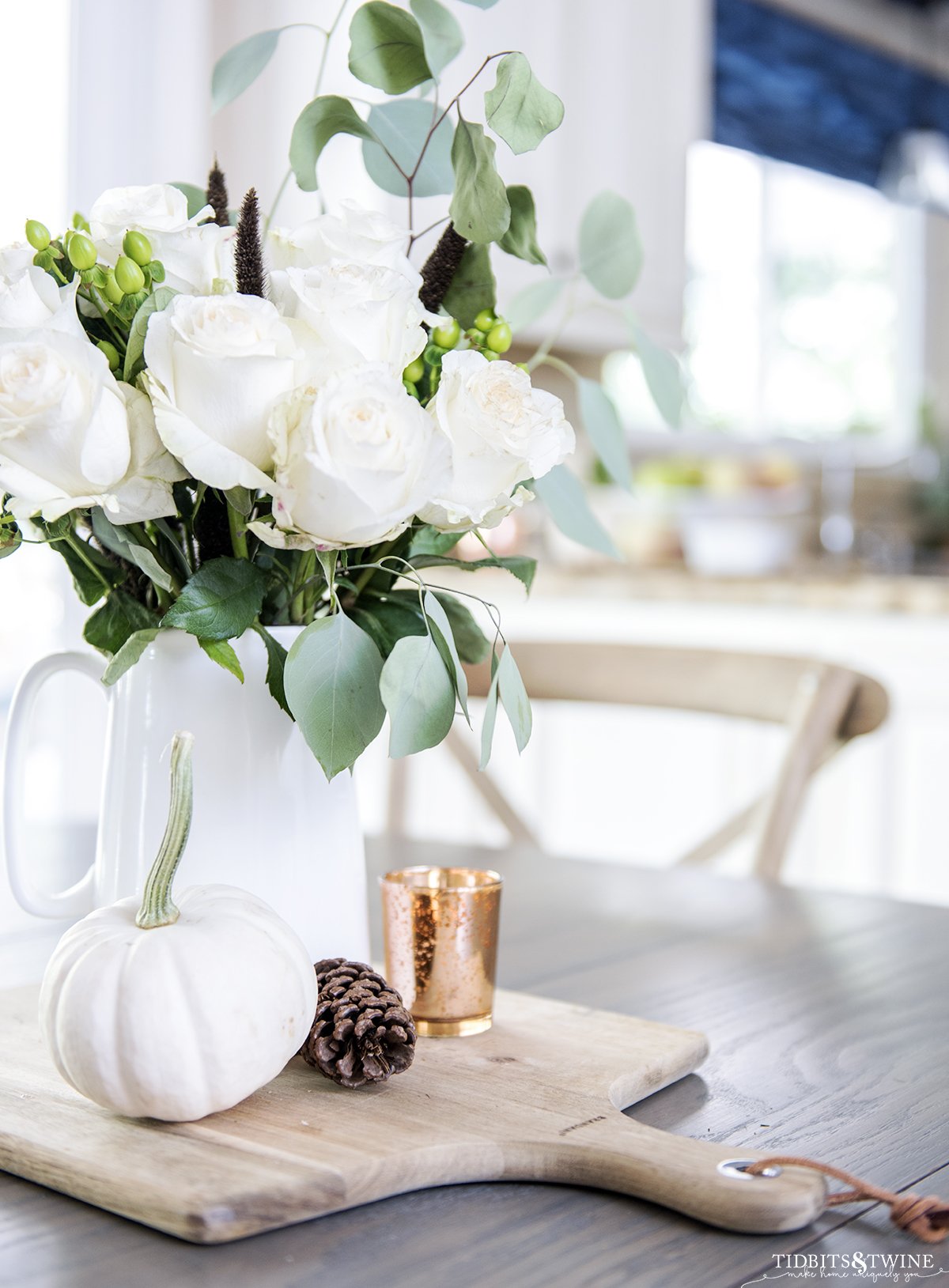
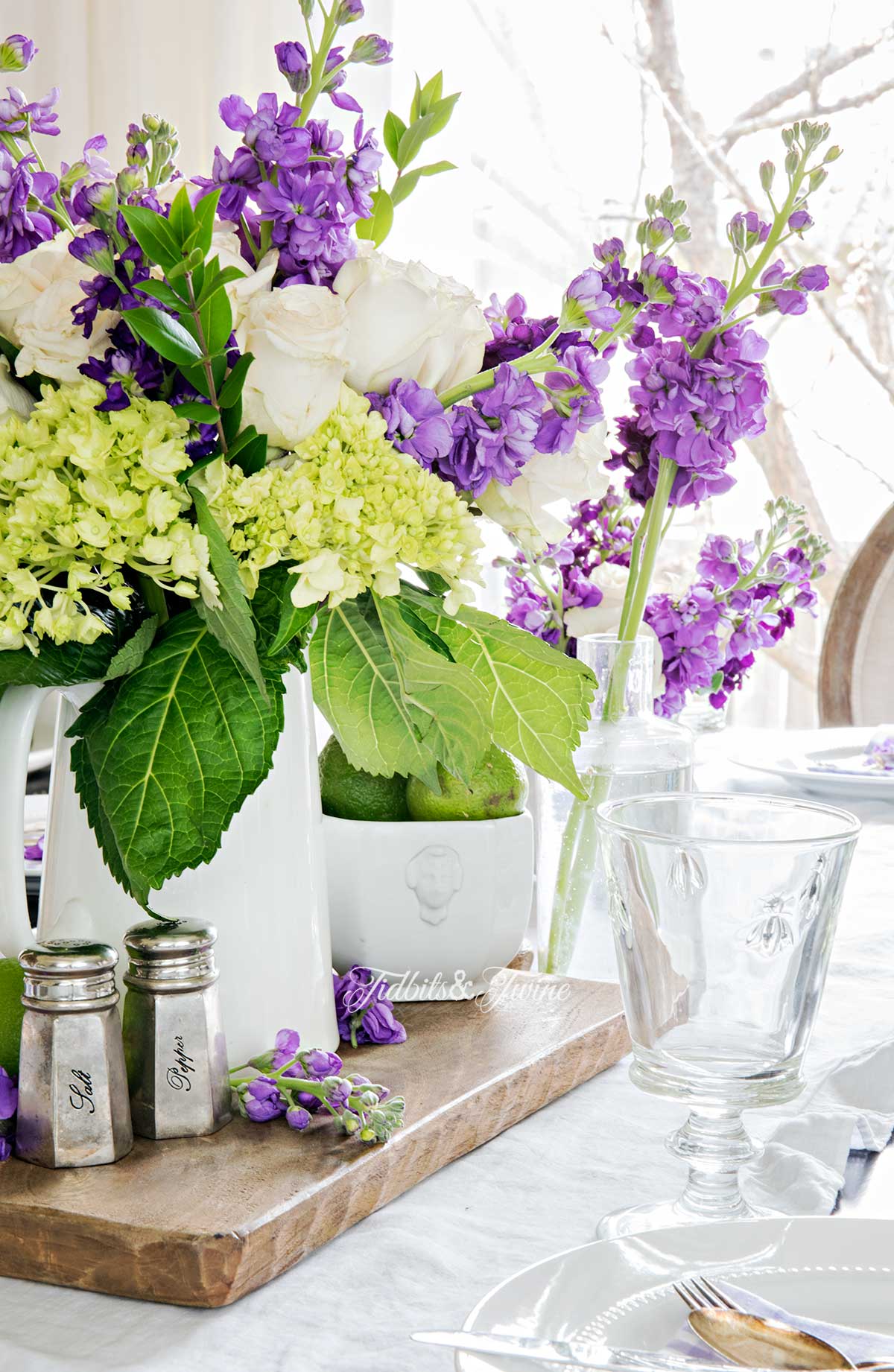
Bread Board Collections as Art
Brooke Giannetti’s fireplace that adjoins her kitchen includes a beautiful display of bread boards. It was actually this picture that inspired me to start collecting!
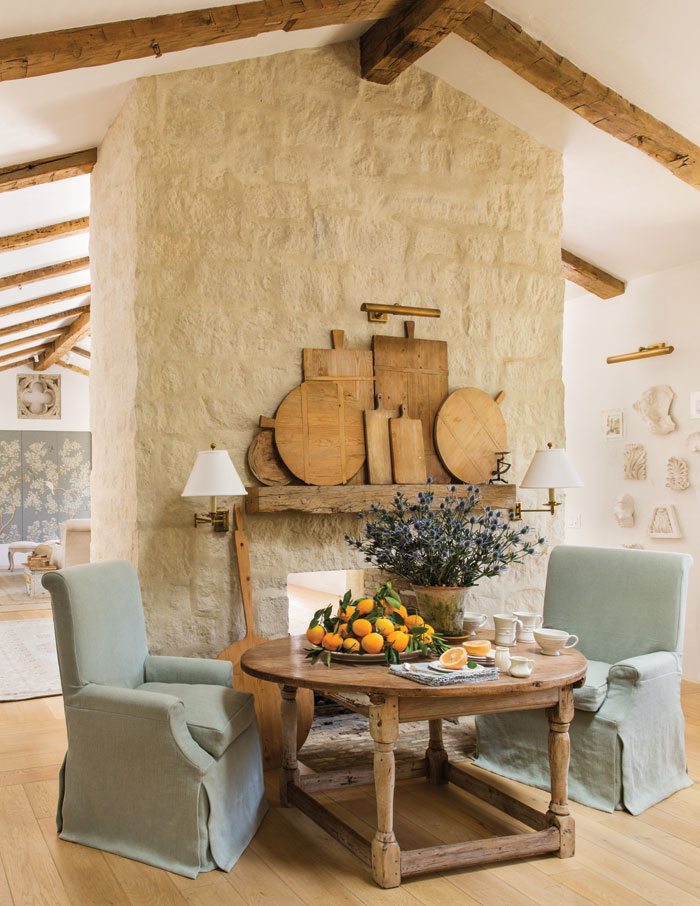
You can also display bread board collections as art!
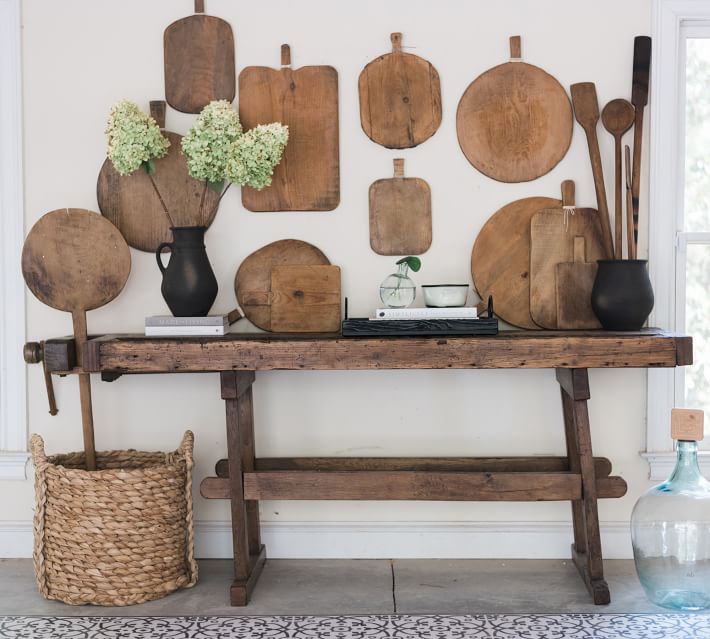
On a Coffee Table
A coffee table, especially an ottoman which by design, is unstable, is a great opportunity to use an antique bread board as a base for a vignette or other display. If you have a stack of baskets as a side table, a bread board can also be used to create a solid surface.
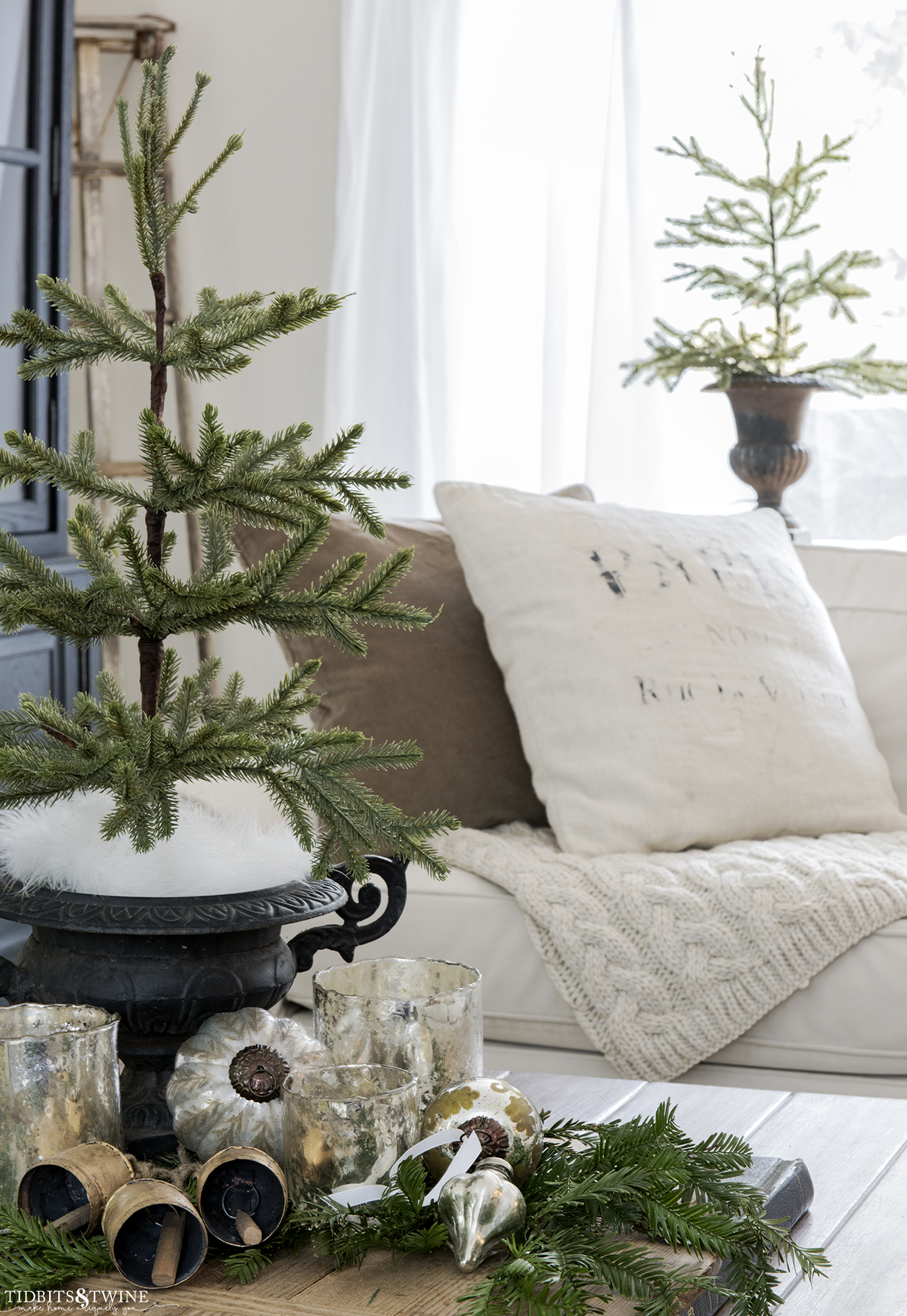
Stacked Bread Boards
Bread Boards on Cabinets
Where to Buy Antique Bread Boards
If you don’t live near a European antique dealer or have access to antique fairs, you’ll need to look online to purchase an antique bread board. My personal favorite shop is Elsie Green. Elsie Green sells both French and German bread boards. They sometimes have warehouse sales and you can score a bread board at 50% off! Most of my boards come from here and they are all authentic and beautiful.
You can also try 1st Dibs , Chairish, or eBay, but honestly, some of my personal favorites are on Etsy. Here are some of my favorite Etsy sellers that regularly carry beautiful boards at reasonable prices.
Chase Vintage
Roger Appleyard
Jans Vintage Stuff
Flea Market France
Where to Buy Reproductions
Given the high price of authentic antique European bread boards, you might opt for a rustic reproduction. I mix vintage-style boards in with my antiques all the time! They add to the size of my collection, plus I’m more comfortable using them for food than my antique ones.
Quite honestly, my favorite rustic boards have come from HomeGoods! They usually have a large stack of boards and you’ll likely find one that speaks to you somewhere in the stack. But it is hit or miss….
You can also look on Etsy for new boards that use reclaimed wood or that have been distressed to have a time-worn appearance. Here are some beautiful options that I found.
How to Care for your Antique Bread Board
I typically just give my boards a wash with soapy hot water, scrubbing in the direction of the grain.
If the board looks like it’s starting to get dry, it’s important to oil it to keep it from cracking. You need a food-safe olive oil, beeswax, or even mineral oil. Wipe the oil on and let it sit overnight, allowing the wood to soak up the oil. The next day, wipe off the excess. Never allow your bread board to sit in water or you risk it warping, as you do with any wood product.
With each board being handmade, I like to think of them as works of art. Pretty soon, you too will have a collection of your own!
More Decorating Tips
- 25+ Beautiful Ideas for Decorating with Dough Bowls
- Collecting and Decorating with White Ironstone
- Decorating with Baskets {18 Everyday Ideas}
- The Beauty of Demijohns and Where to Buy Them!
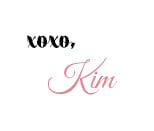
Join the Community
Let’s keep in touch! Get exclusive artwork plus the latest news delivered directly to your Inbox!
